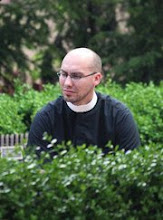The Changing Face of World Mission
If Newbigin (Gospel in a Pluralist Society) was insightful, captivating, and intriguing, then Pocock, van Rheened and McConnell are more along the lines of mind numbing, off-putting and disinteresting. Filled with gross mischaracterizations such as “In contrast with postmodernists, evangelical Christians…” and “In contrast to postmodernitists, Christians maintain…” the authors seem not terribly acquainted with the postmodern movement in the Church and risk alienating many postmoderns who might otherwise find the book helpful. Filled with the kind of stereotypical fundamentalism that advocates divine foreknowledge and determinism, over-accentuates the satanic, and is hyper-fascinated with the demonic, the authors risk alienating many non-fundamentalist evangelicals who might otherwise find their book helpful. Filled with the kind of judgmental, ecumenical blunders such as praising the conversion of other Christians (ie Roman Catholics) or doubting the faith profession of Bono, the authors risk alienating any other Christians, not already offended, who might have found their book helpful.
That said, the authors’ contribution also includes some helpful discussions. Among the positive contributions of the authors is the three-fold yearnings of postmoderns. The perceptivity to note that people have an innate longing to experience transcendence, to feel significant, and to need community is to be commended. Even more commendable is the perceptivity to note that modernity has stripped Christianity of these foundational components reducing Christianity to a life of personal piety with just “me and Jesus – my best buddy.”
Perhaps the most important contribution offered by these authors is their careful look at the “Changing Motivation for Missions” in chapter six. This chapter traces the history of missions in each era of the church by examining the driving force behind the mission work of the church. The early church did missions for God’s glory. The Constantinian church used coercive and often violent means in order to expand the kingdom (whether the kingdom in question refers to God’s kingdom or that of the emperor is not always clear). The Reformation-era church did mission out of a fear of hell, as exemplified in Jonathan Edwards’ famous sermon “Sinners In The Hands Of An Angry God.” Which brings the conversation into the present day, post-Christendom church.
After examining the current theological conversations concerning hell, lostness, and glory, it would seem the post-Christendom church has indeed come full circle back to the pre-Constantinian church in its emphasis on the glory of God. This mission motivation, interestingly, is directly linked to the yearnings of post-moderns for transcendence, significance, and community. The larger issue, however, is a missiological question raised by this changing motivation for mission in relation to the transition from modernity to post-modernity – from Christendom to post-Christendom. How does the local congregation, comprised of people whose motivation for mission was formed in the modern world of Christendom (fear of hell) evangelize people who are formed in the post-modern, post-Christian world who long for transcendence, significance and community?
Motive drives method. A “fear of hell” motive will produce a mission endeavor that is focused on comforting this fear by providing a way out of hell and into heaven, but is that what post-moderns are seeking? Put another way, one will always come to the wrong solution if one is not asking the right question. Those operating with a “fear of hell” motive are attempting to evangelize by answering a question no one is asking. The result will inevitably be grand failure. Can moderns evangelize post-moderns, or must moderns have to become post-modern to evangelize post-moderns? The missiological answer (and also the theological one if the incarnation means anything at all) is that moderns must become post-moderns, or at least enter deeply into the post-modern world. Is such a transition even possible, or is world-view so ingrained that modern churches are simply destined to die, while new post-modern ones sprout new life?
What say you?


0 Comments:
Post a Comment
<< Home